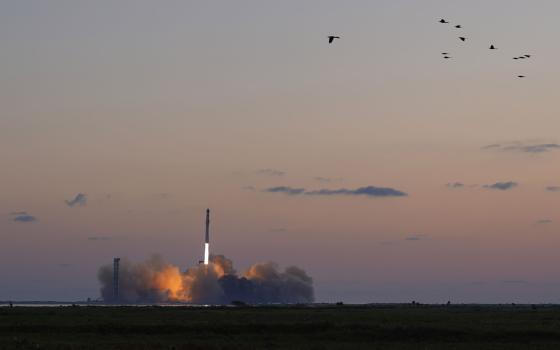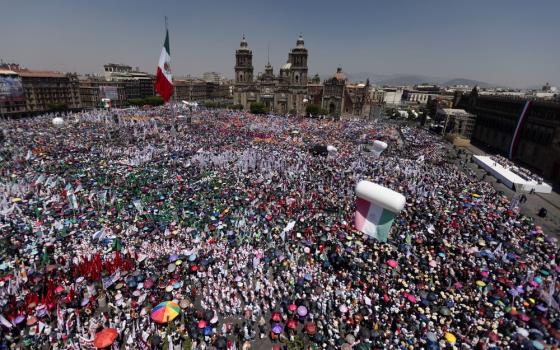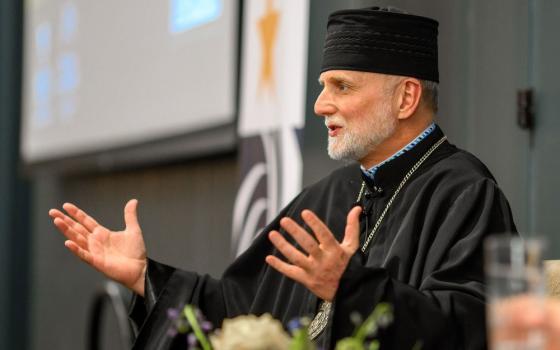
NEW YORK -- The Vatican has declared as venerable Fr. Felix Varela, a 19th-century Cuban priest who worked in New York for many years and also lived in Florida.
Both the New York and Miami archdioceses, where there are many proponents of Varela's sainthood cause, announced the declaration Easter Sunday.
It recognizes the priest lived heroic Christian virtues and is the first official step on the priest's path to sainthood.
The second step is beatification, and the third is sainthood. In general, each of those steps needs a miracle to be accepted by the church as having occurred through the intercession of the prospective saint.
During Pope Benedict XVI's March 26-28 visit to Cuba, he praised Varela as "'a shining example' of the contributions a person of faith can make in building a more just society," noted Miami Archbishop Thomas G. Wenski in a press release posted by the archdiocese. "Varela in his own words reminds us that 'there is no authentic fatherland without virtue.'"
The March 14 decree from the Congregation for Saints' Causes declaring Varela venerable cited the priest's own words at a time of upheaval in Cuba that ultimately led to the nation's independence: "I want to be a soldier of Christ. My purpose is not to kill men, but to save souls."
Varela, who died in exile in the United States in 1853, is not only a model of holiness for Cuban Catholics; both the communist government and its opponents invoke him as an inspiration for their actions.
One measure of his lasting impact on Cuba is that the day the declaration was issued by the Vatican, The Washington Post featured a story about a recent program at a former seminary that now houses the Fr. Felix Varela Cultural Center in Havana. The Post described "a hall packed with professors, dissidents, clergy, bloggers, leftists, diplomats. The subject matter once unthinkable."
The event was a talk featuring Miami millionaire Carlos Saladrigas, a Cuban exile who has gone from being a hard-liner on Cuban isolation to encouraging dialogue, the Post reported.
In a recent interview with Catholic News Service, the Varela Center's cultural director, Gustavo Andujar, described such programs at the former seminary as a fitting tribute to the center's namesake because he was part of early discussions of Cuban independence.
When Blessed John Paul II visited Cuba in 1998, then-President Fidel Castro gave the pope a biography of Varela as a gift.
The year the pope visited, a member of the Christian Liberation Movement began a movement that became known as the Varela Project, an effort aimed at promoting democratic reforms, including greater freedom of speech and of the press, free elections, religious freedom, the ability to begin private businesses and the release of political prisoners.
Cuba's communist government cracked down on dissidents in 2003, arresting dozens of the people involved in the Varela Project. The wives and mothers of those arrested then formed the "Damas de Blanco," or Ladies in White, a group of women who, dressed in white, attend Mass together on Sundays in the Church of St. Rita of Cascia in Havana and then march through the nearby streets.
The last of their relatives were released in 2011, but the women say they continue to experience surveillance and harassment and they want to draw attention to the plight of other political prisoners.
Honored as a patriot and intellectual by many Cubans, Varela's remains were transferred to Havana in 1911 and placed in the main hall of the University of Havana.
Born in Havana in 1788 and ordained at age 23, Varela was an outspoken supporter of Cuban independence. His opposition to the Spanish monarchy led to his exile in 1823.
He went to the United States where he served as a priest in New York and became vicar general of what was then a diocese. He founded Transfiguration Church in what is now Manhattan's Chinatown. And, although other Cuban exiles -- most of whom were well-off -- lived in New York at the time, Varela is known for his devoted pastoral care of the city's poorest residents, many of whom were Irish immigrants.
The priest became ill and moved to St. Augustine, Fla. He was familiar with the area because he had spent time there as a child with his grandfather, who had been a fort commander in what at the time was a Spanish possession. He died in Florida.
Outside church circles, Cubans honor Varela as a patriot and intellectual. The Cuban bishops opened his sainthood cause in the 1980s.


